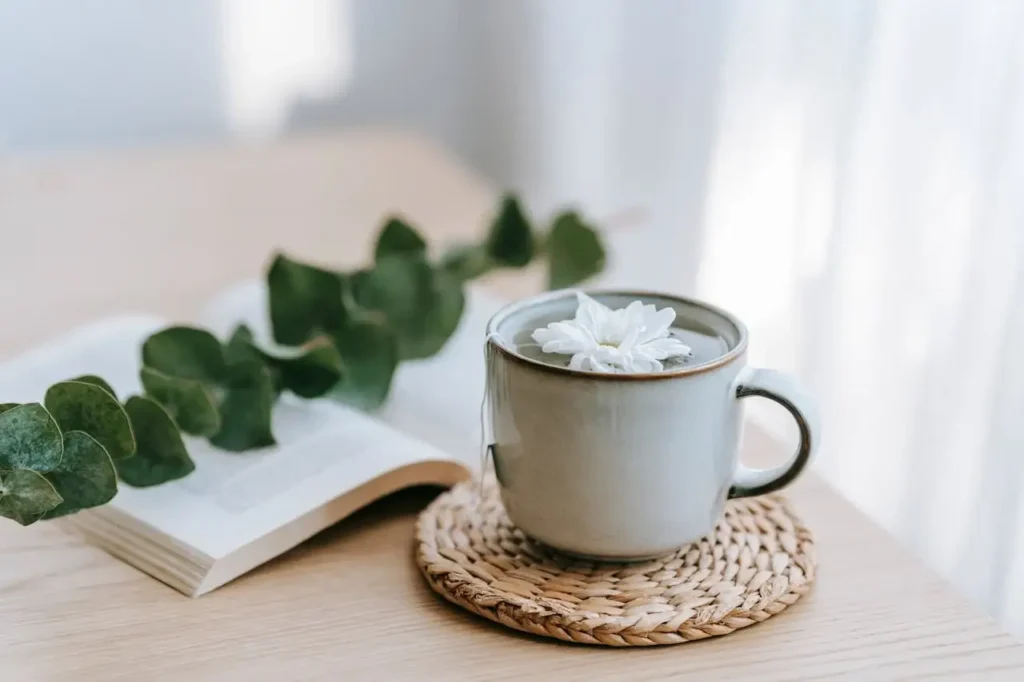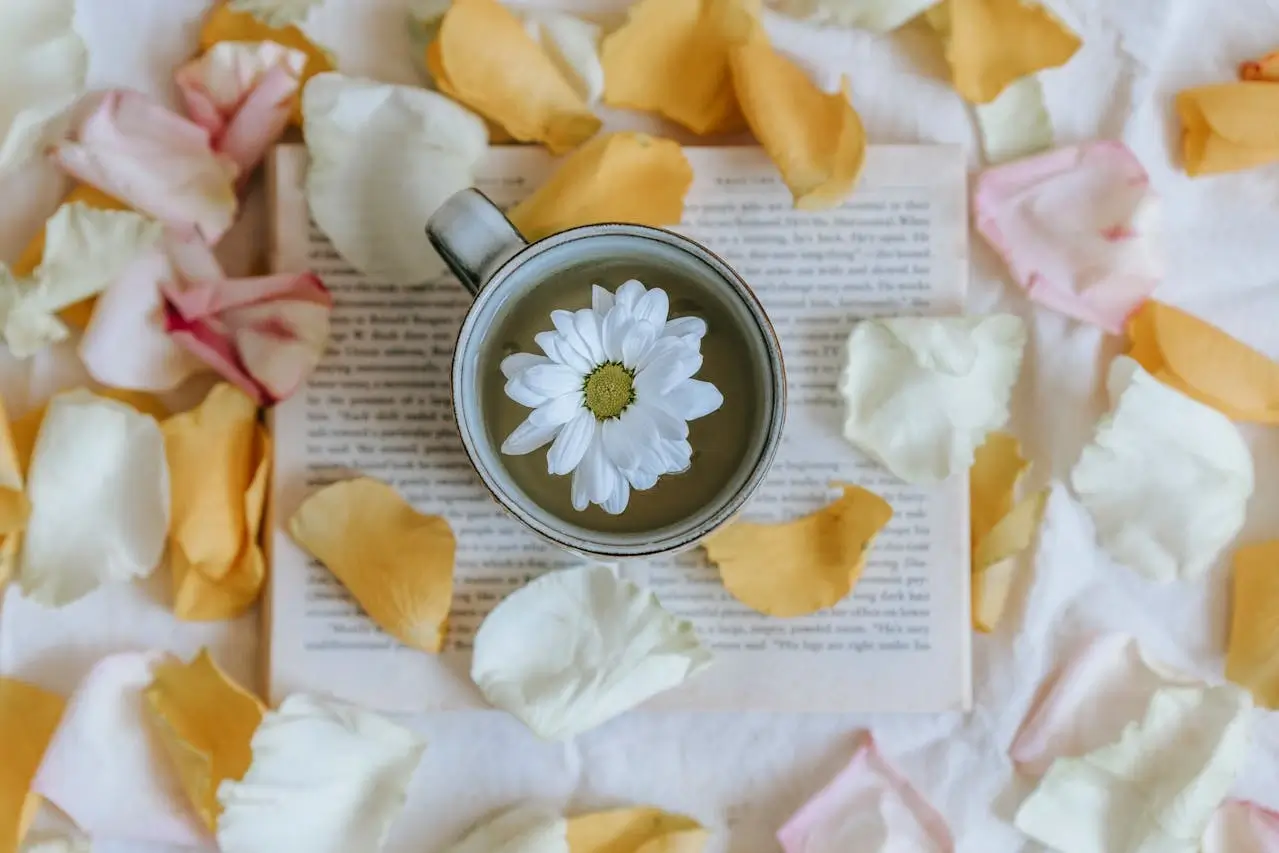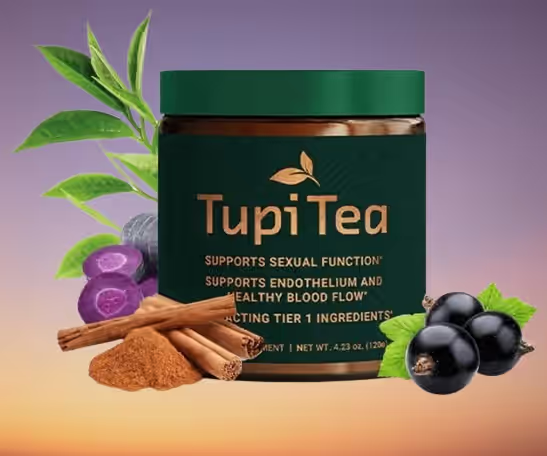Table of Contents
Introduction: Discover the Tea Benefits of Chrysanthemum
When people think about soothing herbal teas, one of the most frequently mentioned is chrysanthemum tea. Known for its pleasant floral aroma and a range of health benefits, this tea is cherished in many cultures. But does chrysanthemum tea have caffeine? In this article, we’ll explore the caffeine content of chrysanthemum tea, its numerous health benefits, and why it’s such a popular choice for those seeking a natural and calming drink.
Is Chrysanthemum Tea Caffeine Free Herbal Drink?
The short answer is yes. Chrysanthemum tea is naturally caffeine free because it is made from the dried flowers of the chrysanthemum plant, not from the leaves of the Camellia sinensis plant, which is used to produce traditional caffeinated teas like black, green, and white teas.
As a naturally caffeine-free beverage, chrysanthemum tea is an excellent choice for people who want to enjoy a warm, comforting drink without worrying about the stimulating effects of caffeine. This makes it especially ideal for those who are sensitive to caffeine, pregnant, or simply looking to unwind before bedtime.
Comparing Chrysanthemum Tea with Other Herbal Teas and Their Caffeine Content
Caffeine-Free Teas
When it comes to caffeine-free teas, chrysanthemum tea stands out as a soothing and flavorful option that deserves more attention. Unlike many popular beverages that rely on caffeine for their invigorating effects, chrysanthemum tea offers a naturally calming experience without any of the jittery side effects. This makes it an ideal choice for those seeking relaxation and tranquility.
Comparison With Chamomile and Peppermint Teas
In comparison with other herbal teas like chamomile and peppermint, chrysanthemum tea holds its own unique charm. Chamomile is renowned for its gentle sedative properties, making it a go-to bedtime brew. Peppermint tea, on the other hand, is celebrated for its refreshing taste and digestive benefits. However, chrysanthemum tea provides a distinct floral aroma and subtle sweetness that can be enjoyed at any time of the day.
Best Non-Caffeinated Teas
For those exploring the world of non-caffeinated teas, chrysanthemum should be at the top of your list. Its delicate flavor profile not only makes it one of the best non-caffeinated teas available but also offers an appealing alternative to more common herbal blends. Whether you’re winding down after a long day or simply savoring a peaceful moment, chrysanthemum tea promises to deliver both comfort and delight without any caffeine kick.
Chrysanthemum Tea in Traditional Chinese Medicine
Chrysanthemum tea has been a staple in Traditional Chinese Medicine (TCM) for centuries, valued for its cooling and calming properties. According to TCM principles, chrysanthemum is classified as a “cooling herb,” making it particularly effective for balancing internal heat and addressing conditions such as fever, headaches, and dry eyes. It is often used in combination with other herbs to support liver health, improve vision, and promote overall well-being.
In TCM, chrysanthemum tea is also believed to help detoxify the body and strengthen the lungs, making it a popular remedy during seasonal changes. This herbal drink is not only consumed for its medicinal benefits but also as a refreshing beverage to enhance daily health. Its gentle nature makes it suitable for people of all ages, highlighting its enduring role in Traditional Chinese Medicine practices.
Health Benefits of Drinking Chrysanthemum Tea

Now that we’ve established that chrysanthemum tea has no caffeine, let’s take a closer look at some of the reasons this herbal tea is so widely consumed. Chrysanthemum tea offers a host of health benefits that contribute to overall well-being.
1. Rich in Antioxidants
One of the primary chrysanthemum tea benefits is its high antioxidant content. Antioxidants are essential in neutralizing harmful free radicals in the body, which can contribute to chronic illnesses and premature aging. Drinking chrysanthemum tea regularly can help to protect the body from oxidative stress, promoting better overall health and longevity.
2. Boosts Immune System
Chrysanthemum tea is known to support the immune system due to its rich nutrient profile, which includes vitamin C and flavonoids. By strengthening your immune defenses, it helps the body fight off infections, such as the common cold, and can reduce inflammation, keeping your immune response balanced and effective.
3. Promotes Eye Health
In traditional Chinese medicine, chrysanthemum benefits are frequently linked to eye health. The tea has been used for centuries to relieve dry eyes, redness, and irritation, especially for people who spend long hours in front of screens or under bright lights. This benefit can be attributed to the high levels of beta-carotene found in chrysanthemum flowers, which the body converts into vitamin A, an essential nutrient for maintaining healthy vision.
4. Aids in Detoxification
Chrysanthemum tea is often used in detox regimens because it helps to clear heat and toxins from the body. This cooling effect makes it an excellent remedy for reducing internal heat and supporting liver function. Regular consumption of chrysanthemum tea can help flush toxins from the liver, improving the body’s natural detoxification process and potentially preventing liver-related issues.
5. Relieves Stress and Anxiety
If you’re looking for a natural way to reduce stress and promote relaxation, chrysanthemum tea could be a great addition to your routine. Its caffeine-free nature combined with its mild sedative properties make it ideal for calming the mind and body. Drinking this tea at the end of the day can help you unwind, reduce anxiety, and promote better sleep without the jittery side effects of caffeinated drinks.
How to Make Chrysanthemum Tea
Making chrysanthemum tea is incredibly simple. All you need are dried chrysanthemum flowers, which can be found at most health food stores or online. Here’s a quick guide:
- Boil water and let it cool slightly (around 90-95°C or 194-203°F).
- Place 3-6 dried chrysanthemum flowers in a teapot or cup.
- Pour the hot water over the flowers and let them steep for 3-5 minutes.
- Strain the tea, if desired, and enjoy.
You can drink it plain or add a touch of honey for sweetness. Some people like to combine chrysanthemum tea with other herbs, such as goji berries, for additional health benefits and flavor.
Chrysanthemum Benefits Beyond Tea

In addition to being consumed as a tea, chrysanthemum flowers have other uses in traditional medicine and modern health practices. Here are some other chrysanthemum benefits that go beyond tea consumption:
1. Skin Health
Chrysanthemum extract is often used in skincare products due to its anti-inflammatory and antimicrobial properties. It can help soothe irritated skin, reduce redness, and may even be beneficial for conditions such as eczema. Applying chrysanthemum-based products can promote a clearer, calmer complexion.
2. Natural Anti-Inflammatory
The flowers of the chrysanthemum plant have natural anti-inflammatory properties, making them effective in reducing swelling and pain. In traditional Chinese medicine, chrysanthemum is used to alleviate headaches, sore throats, and joint discomfort, particularly in cases of rheumatoid arthritis.
3. Cardiovascular Support
Some studies suggest that chrysanthemum tea may help lower blood pressure and cholesterol levels, which are both important factors for cardiovascular health. By promoting better circulation and reducing the risk of heart disease, drinking chrysanthemum tea can contribute to long-term heart health.
Are There Any Side Effects?
While chrysanthemum tea is generally safe for most people, it’s essential to be aware of potential side effects or allergies. Some individuals may be allergic to chrysanthemum flowers, particularly those who have existing allergies to plants in the Asteraceae family, such as ragweed or daisies. Symptoms of an allergic reaction may include skin rashes, difficulty breathing, or digestive issues. If you experience any of these symptoms, discontinue use and consult a healthcare provider.
Additionally, since chrysanthemum tea has a cooling effect, it may not be suitable for individuals who tend to have a cold body constitution in traditional Chinese medicine.
Conclusion: Why You Should Drink Chrysanthemum Tea?
In summary, does chrysanthemum tea have caffeine? No, it doesn’t, making it an excellent option for those looking for a relaxing, caffeine-free beverage. Beyond its soothing properties, chrysanthemum tea offers a wealth of health benefits, including antioxidant support, immune system boosting, eye health promotion, detoxification, and stress relief. With its rich history in traditional medicine and its growing popularity in modern wellness circles, chrysanthemum tea is a delightful way to support your health naturally.
So, the next time you’re looking for a caffeine-free tea that offers both taste and health benefits, consider brewing a cup of chrysanthemum tea.













